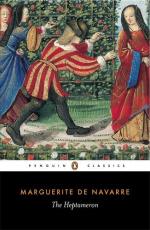3 The editions of 1558 and 1560 here contain this additional phrase: “They do not dare to touch money with bare hands, and yet they willingly finger the thighs of our wives, which are more dangerous.”—L.
Others said, “They are like unto whited sepulchres, which indeed appear beautiful outward, but are within full of dead men’s bones and uncleanness.” (4) Then another voice cried, “By their fruits shall ye know what manner of trees they are.” (5)
You may be sure that all the passages in the Gospel condemning hypocrites were brought forward against the unhappy prisoners, who were, however, rescued and delivered by their Warden,(6) who came in all haste to claim them, assuring the ministers of justice that he would visit them with a greater punishment than laymen would venture to inflict, and that they should make reparation by saying as many masses and prayers as might be required. The judge granted the Warden’s request and gave the prisoners up to him; and the Warden, who was an upright man, so dealt with them that they never afterwards crossed a river without making the sign of the cross and recommending themselves to God.(7)
4 St. Matthew xxiii. 27.
5 “For every tree
is known by his own fruit.”—St. Luke
vi.
45.
6 The Father Superior
of the Grey Friars was called the
Warden.—B.J.
7 Henry Etienne quotes
this story in his Apologie pour
Herodote, and praises
the Queen for thus denouncing the
evil practices of the
friars.—F.
“I pray you, ladies, consider, since this poor boatwoman had the wit to deceive two such evil men, what should be done by those who have read of and witnessed so many fair examples, and who have had the goodness of virtuous ladies ever before their eyes? Indeed, the virtue of well-bred women is not so much to be called virtue as habit. It is in the women who know nothing, who hear scarcely two good sermons during the whole year, who have no leisure to think of aught save the gaining of their miserable livelihood, and who nevertheless jealously guard their chastity, hard-pressed as they may be (8)—it is in such women as these that one discovers the virtue that is natural to the heart. Where man’s wit and might are smallest, there the Spirit of God performs the greatest work. And unhappy indeed is the lady who keeps not close ward over the treasure which brings her so much honour if it be well guarded, and so much shame if it be neglected.”
8 Boaistuau’s edition of 1558 here contains the following interpolation: “As should be done by those who, having their lives provided for, have no occupation save that of studying Holy Writ, listening to sermons and preaching, and exerting themselves to act virtuously in all things.”—L.
“It seems to me, Geburon,” said Longarine, “that there is no great virtue in refusing a Grey Friar, and that it would rather be impossible to love one.”




